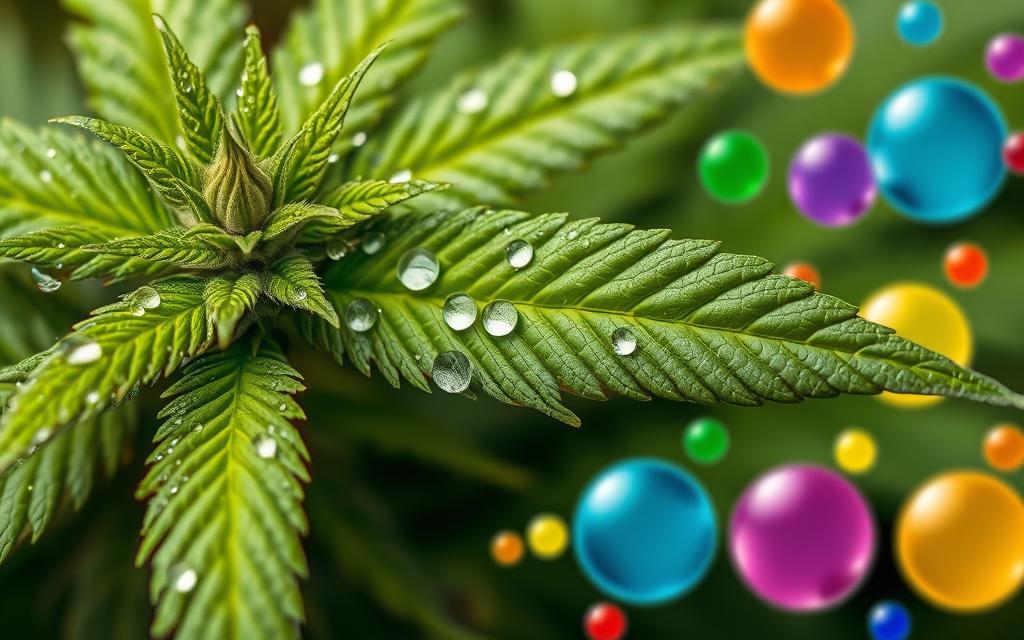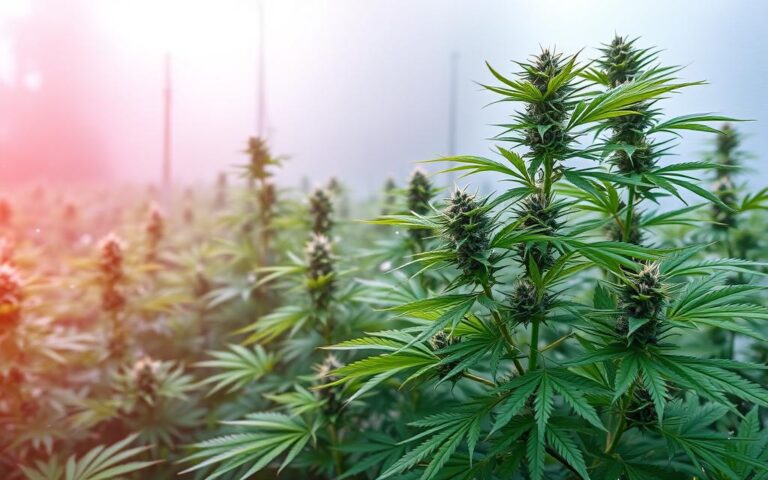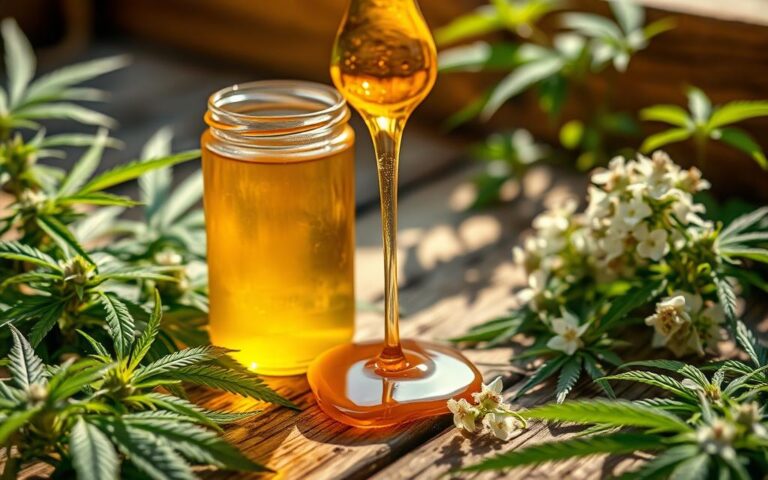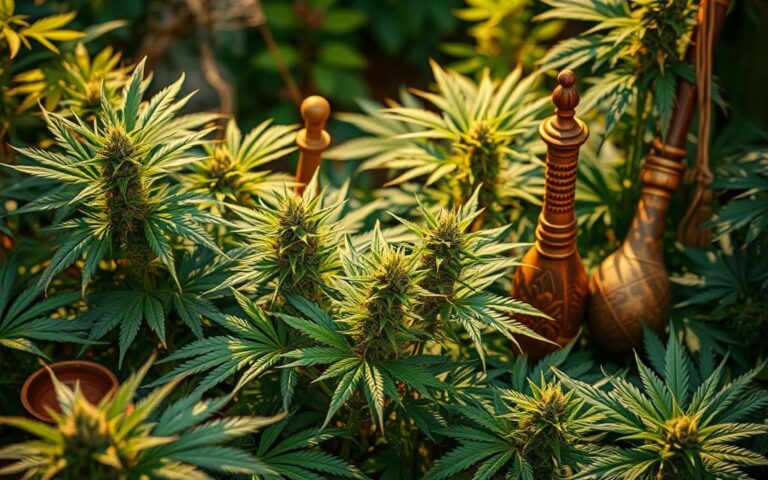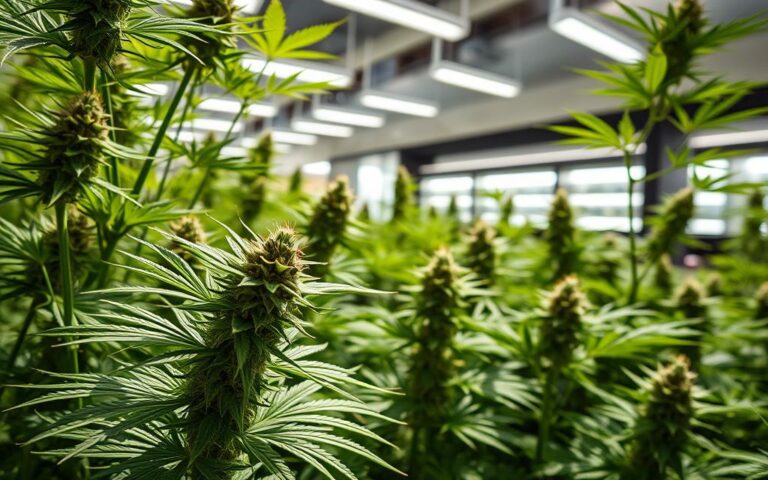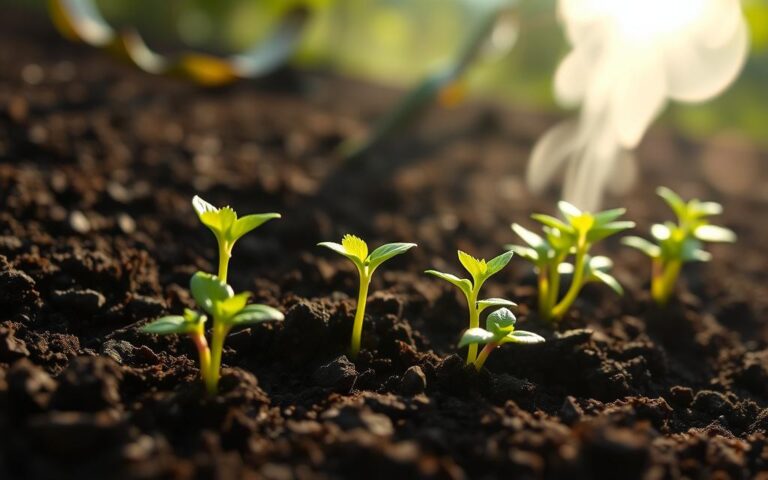What Is TAC in Cannabis? Total Active Cannabinoids Explained
In the world of cannabis, TAC stands for total active cannabinoids. It’s a key figure for those wanting to dive deep into their cannabis products. Unlike just looking at THC or CBD, TAC considers all cannabinoids in a strain. This provides a fuller picture of its power and potential effects. More than 100 cannabinoids exist in cannabis, including CBG, CBC, and CBN. This makes understanding TAC critical for a tailor-made cannabis journey.
TAC helps buyers make smart choices by showing what to expect from all the active parts. Each cannabinoid has a unique effect on our body’s own cannabinoid system. This affects key body processes. As we learn more, TAC sheds light on how different cannabinoids work together, aiming to improve the cannabis experience. For those interested in learning more, check out this article on total active cannabinoids here.
Understanding Cannabinoids
Cannabinoids are natural compounds found in the cannabis plant, with over 100 identified. These cannabis compounds interact with the body’s endocannabinoid system. They affect various physiological processes. To fully understand their importance, one must look into the main types of cannabinoids and their effects.
What are Cannabinoids?
Cannabinoids are phytochemicals produced by the cannabis plant. They interact with specific receptors in the body, leading to different effects. Research on these compounds is ongoing, opening doors to potential therapeutic uses. Each cannabinoid has a unique profile, offering various experiences for users.
Major Cannabinoids: THC and CBD
The most well-known cannabinoids are delta-9-tetrahydrocannabinol (THC) and cannabidiol (CBD). THC is famous for its psychoactive effects, including the high from cannabis. On the other hand, CBD is non-psychoactive. It’s known for potential health benefits like reducing inflammation and easing anxiety. Both play crucial roles in cannabis’ therapeutic effects.
Minor Cannabinoids and Their Significance
There are also minor cannabinoids like cannabigerol (CBG) and cannabinol (CBN). These less familiar compounds add to cannabis’ overall effects. Understanding them is vital because of the entourage effect. This effect means the cannabinoids work together to improve the experience. For more on their history and uses, explore traditional practices. Cannabis has been used in Chinese medicine for centuries to treat different conditions in traditional healing practices.
| Cannabinoid | Type | Notable Effects |
|---|---|---|
| THC | Major | Psychoactive, euphoria |
| CBD | Major | Therapeutic, anti-inflammatory |
| CBG | Minor | Non-psychoactive, potential neuroprotective |
| CBN | Minor | Potential sleep aid |
| CBC | Minor | Anti-inflammatory, possible mood enhancement |
What is TAC cannabis
Total Active Cannabinoids (TAC) are key in the cannabis world. They show us the full picture of a product’s cannabis measurement. TAC counts all active cannabinoids like THC, CBD, CBG, and CBC. If a product says it has a TAC of 23%, it means 23% of it is made up of these active parts. This helps people understand the cannabis effects they might get from a strain or product.
Definition and Importance of TAC
TAC is important because it tells us how strong cannabis products are. It doesn’t just look at THC but includes everything that’s active inside. For example, a label might say “TAC: 23% THC: 19.94%”. This tells us THC is important, but there’s more to the story. Knowing the TAC helps people find what they’re looking for to get the effects they want.
How TAC Differentiates from Traditional Measurements
Old-school cannabis labels mainly talked about THC, the bit that gets you high. TAC is different because it considers all active parts, not just THC. This approach helps people see the wider benefits and effects. Knowing the TAC means people can choose better, understanding what to expect for both mind and body.
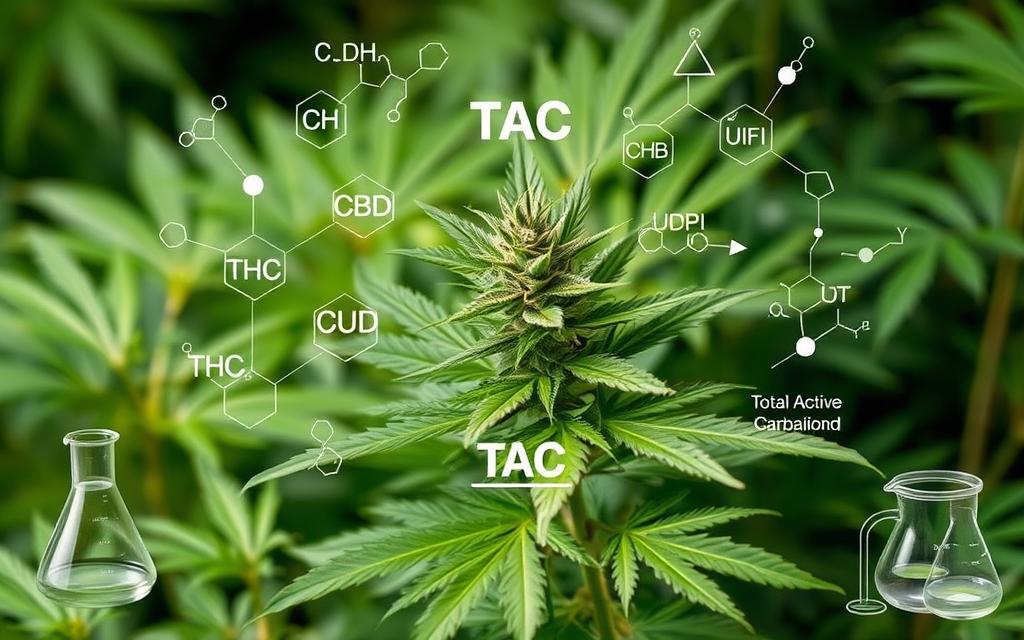
The Role of Decarboxylation
Decarboxylation is key to activating cannabinoids in the cannabis plant. It changes inactive compounds into active ones with heat. It’s important for those wanting to get the most out of their cannabis.
What Is Decarboxylation?
Decarboxylation is a reaction that removes a carboxyl group from cannabinoids like THCA. Heat causes these compounds to release carbon dioxide. This turns them into active forms like THC, CBD, and CBG.
The process is crucial for experiencing cannabis’s full effects. Proper decarboxylation makes potent cannabinoids ready for the body’s endocannabinoid system.
Impact of Heat on Cannabinoid Activation
How heat affects cannabinoids is vital for cannabis potency. Smoking, vaping, and cooking apply heat. This activates cannabinoids, boosting their therapeutic benefits. Knowing about this helps predict how cannabis will work.
| Acidic Cannabinoid | Active Cannabinoid | Potential Benefits |
|---|---|---|
| THCA | THC | Psychoactive effects, pain relief, appetite stimulation |
| CBDA | CBD | Maintains non-psychoactive benefits, potential anti-inflammatory effects |
| CBGA | CBG | Potential antioxidant, anti-inflammatory, and anti-nausea properties |
Understanding decarboxylation and heat’s effect is empowering. It lets consumers make better choices about cannabis. With correct decarboxylation, users fully benefit from their products.
Entourage Effect: The Synergy of Cannabinoids
The entourage effect is a key concept in cannabis science. It shows how cannabinoids and terpenes team up, changing or boosting the effects of cannabis. This teamwork is crucial for understanding how these compounds affect each other and the user’s experience.
Understanding the Entourage Effect
Cannabis has a mix of compounds like cannabinoids, terpenes, and flavonoids. These elements show the entourage effect, which enhances therapeutic benefits. This interaction can lead to stronger effects than if you used each compound alone. For example, THC has psychoactive effects. But CBD can lower negative effects like anxiety. This shows the potential of using cannabis for health and enjoyment.
How TAC Influences the Entourage Effect
Total Active Cannabinoids (TAC) are key to the entourage effect. TAC percentage helps understand how cannabinoids might work together. Higher TAC means a stronger experience is possible. But it’s not all about TAC; terpenes play a huge part too. They have healing properties and can change how cannabinoids work. Good growing techniques lead to cannabis with a lot of terpenes. This makes the experience more custom. For more on cannabis history and use, check this article.
Conclusion
Exploring total active cannabinoids (TAC) helps us understand cannabis better. This knowledge can greatly improve user experiences. As the cannabis industry grows, knowing about TAC becomes more important. It helps consumers make smarter choices.
With clear labels showing TAC levels, people can learn more about their cannabis. They can choose a strain for the exact feeling they want. Maybe they want the strong effect of a high-THC strain or a gentle balance of CBD/THC. Knowing about cannabinoids helps users find what’s best for them.
New rules and products, like drink mixes and tinctures, are coming out. This means consumers can enjoy cannabis in many ways. Understanding TAC allows for better experiences and wellness. Informed usage leads to enjoying the full benefits of cannabis.
FAQ
What does TAC stand for in cannabis?
TAC stands for Total Active Cannabinoids. It’s a measure of all active compounds in a cannabis strain. This tells us about its strength and effects.
Why is understanding TAC important for cannabis users?
Knowing about TAC is key. It lets buyers understand how strong a cannabis product is and what to expect from it. This goes beyond just looking at THC and CBD levels.
How do minor cannabinoids influence cannabis effects?
Minor cannabinoids, like CBG and CBN, have big roles. They boost the plant’s effects and healing properties. This leads to a better experience because of the entourage effect.
What is the entourage effect?
The entourage effect is when different cannabinoids and terpenes work together. This teamwork changes and improves the effects of using cannabis.
How does decarboxylation affect cannabis potency?
Decarboxylation turns acidic cannabinoids into their active states through heat. It’s vital for feeling the full effects of cannabinoids.
What role does TAC play in the entourage effect?
TAC shows us how cannabinoids work together in the plant. It helps us understand the possible effects and benefits for both fun and health purposes.
How can consumers make informed choices through understanding TAC?
By looking at the total active cannabinoids, users can pick the best cannabis for their needs. This helps whether they want it for health reasons or just for fun.
Are there more than just THC and CBD in cannabis?
Yes, there are over 100 different cannabinoids in cannabis. These include minor ones that add to the plant’s effects and health benefits.

